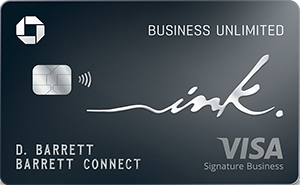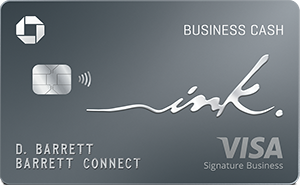Starting a business requires confidence, energy, and optimism. Entrepreneurship is about being creative and building something new in the world — even if other people don’t understand, think it’s too risky, or don’t see the same opportunities. Starting a business is an act of hope.
But there are real risks, costs, and downsides to starting a business. Good entrepreneurs know how to weigh the risks — but still move forward with cautious, fact-based, well-informed faith in the future.
Here are a few big misconceptions that can hold back would-be entrepreneurs from starting a business — and how you can market your business with a clearer view of the positive possibilities.
1. “It’s too expensive to start a business”
You might assume that you need a lot of start-up capital to start a business. It’s true that if you want to open a restaurant or brick-and-mortar retail space, you’re going to need some cash or a small business loan to get your business up and running. But many business ideas don’t require a lot of upfront investment.
The Motley Fool Ascent’s research has found that some home-based small businesses can be started with less than $1,000, while the average e-commerce small business might need $40,000 of start-up capital in the first year. Franchises can be another cost-effective option for starting a business — you buy into an established system and corporate brand.
2. “It takes too much time to start a business”
Many businesses can be started as flexible work-from-home side hustles that you do in your spare time. You don’t have to quit your day job. You don’t have to invest every last minute of your life in starting a business.
Why a Business Credit Card Could Transform Your Small Business
These business credit cards that offer a convenient and efficient way to separate personal and business expenses, simplifying accounting and tax reporting.
Additionally, business cards can provide valuable perks such as rewards points, cashback, and expense tracking tools, enhancing financial management and the potential to help save money in the long run.

Ink Business Unlimited® Credit Card |
Earn $750 bonus cash back Earn $750 bonus cash back after you spend $6,000 on purchases in the first 3 months from account opening. | Earn unlimited 1.5% cash back on every purchase Earn unlimited 1.5% cash back on every purchase made for your business |
Intro: 0% Intro APR on Purchases Purchases: 0% Intro APR on Purchases, 12 months Balance Transfers: N/A Regular: 18.49% – 24.49% Variable |
|

Ink Business Cash® Credit Card |
Earn up to $750 bonus cash back Earn $350 when you spend $3,000 on purchases in the first three months and an additional $400 when you spend $6,000 on purchases in the first six months after account opening. | Earn 5% cash back in select business categories Earn 5% cash back on the first $25,000 spent in combined purchases at office supply stores and on internet, cable and phone services each account anniversary year. Earn 2% cash back on the first $25,000 spent in combined purchases at gas stations and restaurants each account anniversary year. Earn 1% cash back on all other card purchases with no limit to the amount you can earn. |
Intro: 0% Intro APR on Purchases Purchases: 0% Intro APR on Purchases, 12 months Balance Transfers: N/A Regular: 18.49% – 24.49% Variable |
Perhaps the greatest thing about making money online and starting a business in 2024 is that you can test the waters and learn as you go. Starting a business is not “all or nothing.” You can dabble, experiment, and then ramp up your efforts once you see how the market responds to your products or services.
3. “You need advanced tech skills to start a business”
You don’t have to be an expert in every skill to be an entrepreneur. You just need an idea, and a sense of determination and hustle to keep making progress toward your business goals.
Technology skills, corporate experience, formal credentials, and years of business expertise can be useful. If you already know how to write code, develop apps, build websites, do digital marketing, or raise money from investors, that is fantastic. But many entrepreneurs don’t have formal training or a perfect pedigree. Not every entrepreneur excelled in formal education, or can get along well in traditional corporate environments.
Sometimes that “outsider” spirit is valuable for entrepreneurship, too. Many of the most important business management skills can be learned by doing — and wanting to keep money coming into your business bank account is the best motivation of all to stay curious, stay hungry, and keep learning new things.
4. “No one wants what I’m selling”
The most important business skill is sales. No sales, no business. If you want to start a business, you need to have confidence that there is demand for your product or service — that there is a market for what you offer.
Sometimes the market for a small business is obvious: if you want to start a pizza restaurant or a food truck that sells tacos, you can quickly do some market research and see how many other pizza joints and taco wagons are doing business in your area. If you want to start a hair salon, there is a reasonable level of ongoing demand for haircuts.
But sometimes you have to create demand, or create an entirely new niche market, for your product. What if you want to sell software that helps meteorologists make interactive videos for social media? What if you want to start a fitness-oriented food truck that serves fresh salads and smoothies? Some business ideas are unconventional — and they won’t all succeed. But you won’t know until you try to market your business and find customers who want what you’re selling.
5. “There’s too much competition in the marketplace — the good ideas are already taken”
It’s easy to get bogged down by thinking that “all the good business ideas are taken,” or all the good markets are already being discovered and served by other entrepreneurs and big corporations. But this is a mistake!
There are surprising opportunities for new businesses to break into established markets, even if they’re dominated by big corporations. For example, look at the recent craft beer boom in America; many big corporate beer brands have seen a decline in sales in the past few years, while small local breweries have thrived. Or look at how many quirky local coffee shops are still doing fine, right down the street from big corporate coffee chains.
The economy is vast and varied. Whatever business you want to start, if you find your niche and hustle hard, with a bit of luck you can carve out sustainable success.
Bottom line
Don’t let negative thinking or misconceptions hold you back from being an entrepreneur. In some ways, it’s easier than ever to start a business. Start it as a side hustle, working from home. Do research online to learn more about your target market and how your industry works. And test your idea with digital marketing tools to help you find customers and spread the word about your product.
Alert: our top-rated cash back card now has 0% intro APR until 2025
This credit card is not just good – it’s so exceptional that our experts use it personally. It features a lengthy 0% intro APR period, a cash back rate of up to 5%, and all somehow for no annual fee! Click here to read our full review for free and apply in just 2 minutes.

